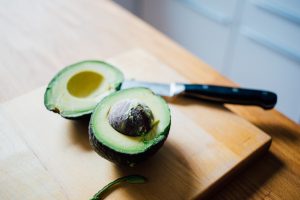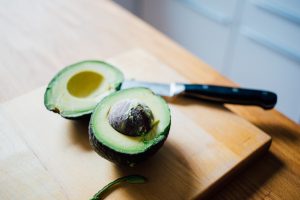 Avocado is everywhere – on your toast, in your smoothie, and over your salad. Many are cautious with their avocado intake due to its high calorie content. But could avocado actually help people to achieve weight loss on a low-calorie diet?
Avocado is everywhere – on your toast, in your smoothie, and over your salad. Many are cautious with their avocado intake due to its high calorie content. But could avocado actually help people to achieve weight loss on a low-calorie diet?
Background
Low calorie diets assist with weight reduction in those who are overweight or obese, but results are often inconsistent. There is some evidence that suggests the quantity and quality of macronutrients can aid weight loss through satiety.
A popular food in recent times is avocado – a calorie-dense fruit that is more commonly used as a vegetable. Avocados contain a significant amount of fibre, along with other nutrients such as vitamin E, monounsaturated fat and lutein.
Many health experts spruik the benefits of avocado and other healthy fats for overall wellness, and some suggest avocado can be beneficial for weight loss and satiety. However, there is limited research into how avocado consumption within a hypocaloric diet affects weight loss.
The study
Researchers designed a 12-week controlled trial to explore the effects of daily avocado consumption within a hypocaloric diet on weight loss, body composition, inflammation and gut flora composition.
The participants were healthy adults aged between 20-60, with a BMI between 27-35. Exclusion criteria included weight change of more than 5 pounds over the previous 3 months and taking prescription or over-the-counter medications for weight loss.
51 participants were randomised into one of two groups. One group consumed a hypocaloric diet that included one Hass avocado daily. The other group consumed a hypocaloric diet without daily avocado.
Anthropometric measurements, serum markers for inflammation and intestinal microbiota were analysed at baseline and week 12 of the trial.
The findings
Both the avocado group and control group experienced significant weight loss, along with decreases in BMI, total body fat and visceral adipose tissue.
There was no significant difference in triglycerides between the groups, but the avocado group did see a significant decrease between baseline and 12 weeks.
In the avocado group, there were significant changes in the proportion of several beneficial microbiota compared to the control group. There was also a trend of decreased inflammatory markers interleukin 1 beta and CRP in the avocado group compared to control.
Conclusion
The researchers concluded that daily consumption of avocado as part of a hypocaloric diet demonstrated benefits for weight loss, lowered inflammation and abundance of beneficial gut bacteria.
However, they did note some limitations, including the lower number of participants and lack of individual dietary intake information. Further research that includes more participants and takes more extensive data would be beneficial in confirming the findings of the study.
It is important to note that this study was supported by the Hass Avocado Board. However, the authors noted that the Board was not involved in designing, analysing or preparing the study for publication.
Reference
Henning, S.M., Yang, J., Woo, S.L., Lee, R.P., Huang, J., Rasmusen, A., Carpenter, C.L., Thames, G., Gilbuena, I., Tseng, C.H. and Heber, D., 2019. Hass Avocado Inclusion in a Weight Loss Diet Supported Weight Loss and Altered Gut Microbiota: A 12 Week Randomized Parallel-Controlled Trial. Current Developments in Nutrition.

